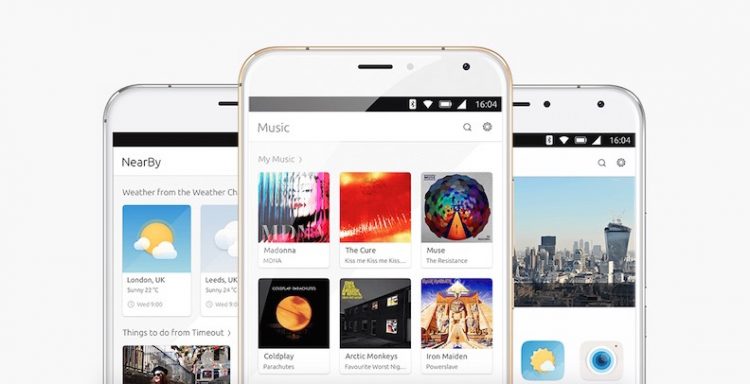A recent blog post by Canonical’s Ted Gould has reignited discussion around ‘the case for Ubuntu Phone’ — not that sort of case, either.
The mobile landscape is dominated by two main operating systems: various flavours of Android, and Apple’s iOS. Third-place players like Windows Phone have thus far failed to persuade people to switch to something ‘other’. Even BlackBerry has switched from developing its own-brand OS to using Google’s Android.
Since its inception back in 2013, one question has been asked of Ubuntu Phone: what will make it succeed?
Early on the big USP was “convergence”, the idea that you can use your phone to power a full desktop experience. Latterly it’s been the convenience of Scopes to ‘put information at your fingertips’, without relying on applications.
But has the biggest selling point been overlooked?
“Biggest Weakness Is Its Biggest Strength”
Ted Gould works is an engineer for Canonical and works on Ubuntu Personal, the “snap-ified” version of Ubuntu that will, in time, form the basis of future Ubuntu smartphones.
Gould posits that “the biggest strength” of Ubuntu Phone is its lack of integrated services, something he feels is also an attractive proposition for telecommunication providers (aka ‘mobile networks’) who says are increasingly unable to pre-load phones with bloatware additional services and value for phone users.
“If you buy an Android device you get Google Services. If you buy an iPhone you get Apple services. While these can be strengths (at least in Google’s case) they are effectively a lock in to services that may or may not meet your requirements,” he writes.

For most of us that’s not a negative; you can, on any device, manually install other, similar apps, e.g., WhatsApp, Telegram, Signal, et.
But these are (typically) unable to deeply integrate with the phone experience in the same way that the services the phone ships with can.
It’s this situation that Gould thinks is a potential plus for Ubuntu:
“This goes throughout the device including things like music and storage as well. Ubuntu and Canonical don’t provide those services, but instead provide integration points for any of them (including Apple and Google if they wanted) to work inside an Ubuntu Phone.”
Existing commercial Ubuntu devices so thus far do have these ‘integration points’ available, but third-party app developers and service providers are yet to take advantage.
Canonical developers have worked hard providing a native Telegram experience on Ubuntu Phone, and NextCloud/OwnCloud integration was a key part of OTA-13.
‘Ubuntu Phone Is happy to be a freak with you’
‘ Ubuntu phone is at an overwhelming disadvantage in telco appeal’
Is the lure of a phone where you get to choose from a (thus-far hypothetical) set of services more attractive than booting up a phone with a set of services ready-to-roll?
Ted thinks so, noting that “if you love Hangouts and Apple Maps, Ubuntu Phone is happy to be a freak with you.”
And it’s this “flexibility” to bundle alternative apps and services on handsets that Gould thinks is attractive to mobile carriers:
“[Mobile carriers are] trying to put together packages of data and services that will sell, and fetch a premium price (effectively bundling). Some they may provide themselves and some by well known providers; but by not being able to select options for those base services they have less flexibility on what they can do.”
“Sure, Google and Apple could give them a great price or bundle, but they both realize that they don’t have to. So that effectively makes it difficult for the carriers as well as alternate service providers (e.g. Dropbox, Spotify, etc) to compete.”
‘Ubuntu Phone at an Overwhelming Disadvantage’
Naturally not everyone agrees with this out look.
Among them is Rui Carmo, who has’ two decades of experience working in the telco/internet industry, from network planning to mass-market product development.’
Carmon argues that ‘despite the vision and values behind it’ Ubuntu phone is at a “overwhelming disadvantage in terms of both telco appeal (what I and my former colleagues still in the device procurement part of the telco business have seen so far has no compelling advantage over Android) and ecosystem.”
“Even if selling off-telco worked, the one problem I see is the lack of that ecosystem, or a way to bootstrap it, because if it ran Android apps (and therefore fracture the user experience) that would not ensure developer adoption… And most people only want a “good enough” phone that lets them run apps and a few games, which further compounds the problem — the value of Ubuntu Phone just isn’t apparent to them, which is sad.”
‘Ubuntu Phone Isn’t Good Enough’
Also unconvinced is Terence Eden, who has worked for various European telecoms companies, including O2, for over 10 years. He says telcos are not only ‘not interested’ in flexibility, but they also don’t care.
“[Telcos] care about profit margin and making sure that people don’t ring call centres to complain about broken hardware,” Edent writes. “My old employer (O2) sells a bunch of Cyanogen based Android devices – because the cost is right and the services are good enough. Ubuntu isn’t even close to competing with that yet.”
Whats more Eden, tackles Gould’s main posit: that telecoms companies are less able to bundle apps and services on Android and iOS (emphasis ours):
‘Ubuntu Phone has the fundamental DNA to win in this race’
“Providers (in the UK at least) are able to bundle services and apps with iPhones, Android, Windows Phone. I’ve worked with handset manufacturers to add DropBox, replace DropBox with something else, have apps preinstalled, remove bloatware – and everything in-between. Dropbox has a multi-million dollar marketing budget. If your new service can pay an operator €10 per customer – guess what – they’ll push you to the front of the user’s home screen.”
Terence Eden says he bought an Bq Aquarius M10 Ubuntu tablet last year but “had to return it because it was functionally unusable”.
Stay Positive
It’s perfectly acceptable that people with different experiences see things differently when it comes to the supposed pros or cons of Ubuntu Phone. There is no “right” or “wrong” opinions here, just different ones.
Gould, for what its worth, remains positive. He concludes his argument by saying that he thinks “Ubuntu Phone has the fundamental DNA to win in this race.”
And he may be right.
In the past Canonical has mentioned that mobile carriers are keen to offer Ubuntu Phones to their customers, but that they (Canonical) feel the OS isn’t ready for prime time just yet.
What do you think? Is there a real gap in the market for Ubuntu Phone? Is an alternative open-source mobile OS, like GNOME Phone or Plasma Mobile, be better suited to rival Android? Or is Ubuntu Phone’s strength less in what carrier can bundle and more in what it can do through convergence? Let us know in the space below…

